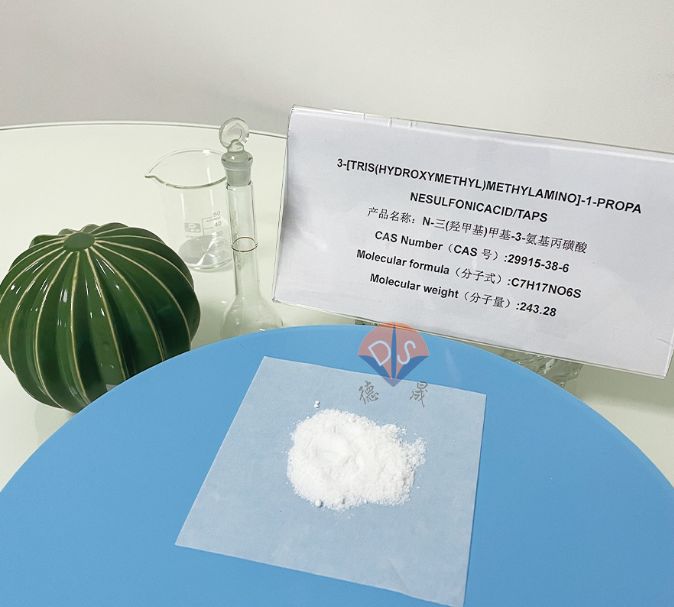The role and advantages of trihydroxymethylaminopropane sulfonic acid TAPS in cleaning agents
Release time:
2025-11-02
In the field of dental care, the efficacy and safety of cleaning agents are directly related to the lifespan of treatment equipment and the health of patients. In recent years, a zwitterionic buffering agent called trihydroxymethylaminopropane sulfonic acid (TAPS buffer) has quietly emerged as a core component of new dental instrument cleaning agents. TAPS is not only well-known for its excellent pH stability in biochemical experiments, but also shows great potential in dental cleaning applications.

TAPS buffer
The core role of TAPS in cleaning agents
TAPS, as a zwitterionic buffering agent, plays a crucial role in pH regulation in cleaning agents. It can form an equilibrium system with weak acids and their conjugate bases, maintaining the cleaning solution in a suitable pH range (usually 7.5-9.0), thereby optimizing the chemical environment of the cleaning reaction. This characteristic is crucial for removing dental plaque: dental plaque is mainly composed of bacterial biofilm and organic residues, and cleaning is highly dependent on the stability of pH value. Traditional cleaning agents such as citric acid or sodium bicarbonate have limited pH buffering capacity and are prone to fluctuations during use, resulting in poor cleaning effectiveness. TAPS has a high buffering capacity, which can continuously maintain an alkaline environment, effectively decompose biofilm structures, and avoid corrosion on the surface of instruments.
In addition, the molecular structure of TAPS combines hydrophilic and hydrophobic groups, which can penetrate deep into dirt and destroy the protein and lipid matrix of dental plaque. This' chemical drilling 'capability eliminates the need for enzyme additives such as proteases or lipases, thus freeing it from strict temperature requirements - enzyme cleaning agents typically require operation at 35-40 ° C, while TAPS can be highly efficient at room temperature, greatly simplifying the operation process.
Advantages of TAPS in Cleaning Agents
Traditional enzyme cleaning agents are temperature sensitive and require strict control of dissolution temperature, while TAPS cleaning agents can maintain stability in the range of room temperature to high temperature. Users only need to immerse the equipment in the solution without monitoring the temperature, which improves the convenience of daily use. Moreover, using tapes as buffering agents does not leave any chemical residues on the surface of thermoplastic film instruments after cleaning, avoiding the risk of secondary contamination and significantly improving the safety of long-term use for patients. At the same time, the buffering property of TAPS allows it to quickly dissolve and perform efficient cleaning at room temperature, without relying on heating or temperature control equipment, simplifying the daily cleaning process.

Product packaging
Hubei Xindesheng: A Reliable Source of TAPS Buffer
Hubei Xindesheng is a reliable production source of trihydroxymethylaminopropane sulfonic acid (TAPS). With its professional synthesis process and strict quality control system, it produces high-purity and highly stable TAPS products, whose purity far exceeds industry standards, ensuring its excellent performance in cleaning agent applications. In the future, with the increasing demand for efficient and convenient cleaning solutions in the dental care industry, TAPS based cleaning agents are expected to become the mainstream choice. And Desheng New Materials will continue to empower technology to promote the widespread application of this innovative material.
Contact details
Contact number
Address: C8, Guanggu United Science and Technology City, Ezhou City, Hubei Province
Fax:0711-3704 589
Follow us



